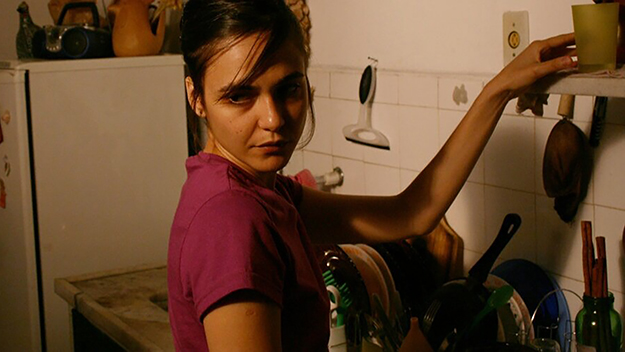Film Comment Recommends: Mulher à Tarde
This article appeared in the September 16 edition of The Film Comment Letter, our free weekly newsletter featuring original film criticism and writing. Sign up for the Letter here.

Mulher à Tarde (Afternoon Woman) (Affonso Uchôa, 2012)
Streaming as part of Cinema Tropical’s Veinte por veinte (“20 for 20”) series in MoMA’s Virtual Cinema, September 16-23
Affonso Uchôa’s debut feature focuses on the lives of three working-class single women living together in the industrial city of Belo Horizonte, Brazil. Unlike Uchôa’s follow-up, Araby (2017, co-directed with João Dumans), which chronicles a factory worker’s journey through Brazil through narrated flashbacks, Mulher à Tarde is a linear portrayal of the seemingly mundane existence shared by its protagonists over the course of a single afternoon. The film is constructed as a series of conversations that unfold as the characters eat dinner, wash dishes, look at photos—each highlighted by a title card that describes the scene: “Woman waiting on her knees” or “Woman followed by the eye.” Much of the conflict of the filmrevolves around the three friends beginning to drift away from one another, as one looks to move to a different city and another becomes preoccupied with a new job. Shot in painterly tableaux, these conversations, however trite they might appear to be at first, slowly reveal the personalities of three women who would rather talk about plumbing issues than confront the fact that their separation will irrevocably change their lives. What makes Mulher à Tarde so compelling is its search for meaning in those daily tasks, like riding the bus or sitting outside the park, which offer us rare moments to reflect on our existence.







